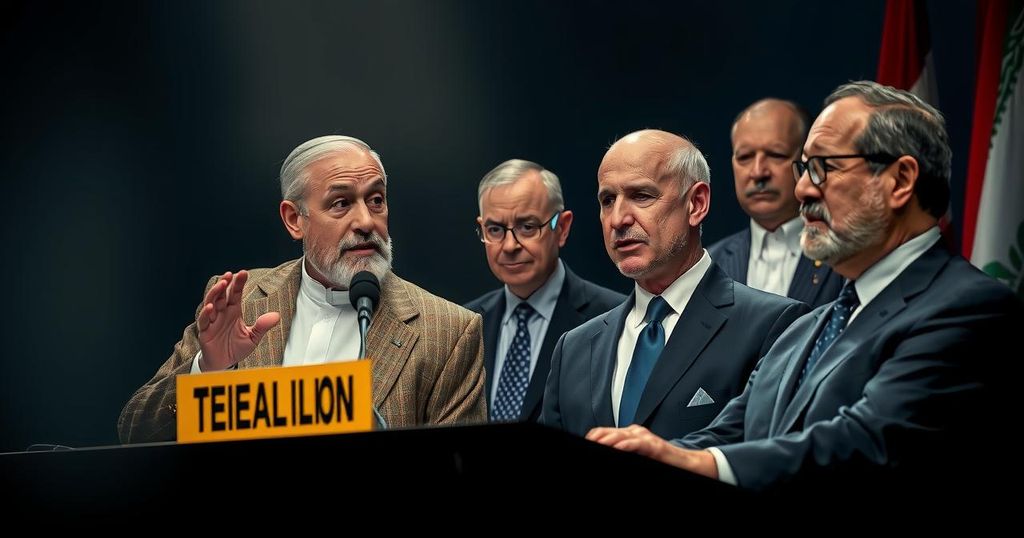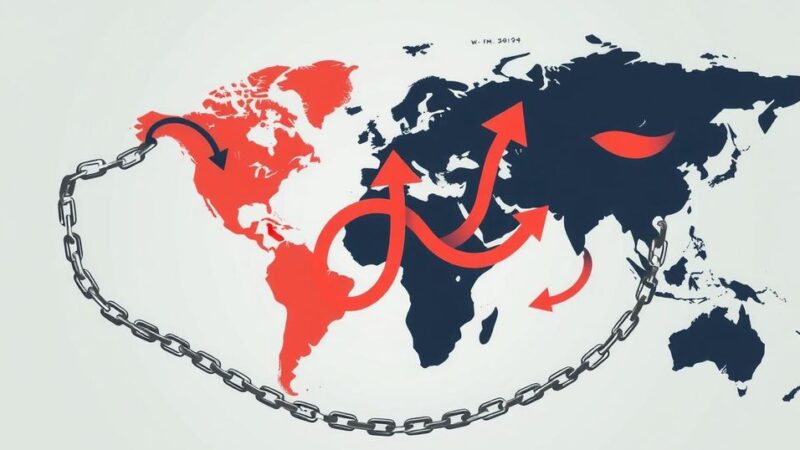Saudi Arabia and the UAE, among other Middle Eastern nations, have strongly condemned Israel’s military strikes on Iran, labeling them a violation of sovereignty and international law. This condemnation follows Israel’s targeting of Iranian military sites after Iran launched ballistic missiles toward Israel. Regional actors are calling for restraint and dialogue to mitigate escalating tensions that could compromise regional security.
Saudi Arabia and the United Arab Emirates (UAE), along with several other Middle Eastern nations, have condemned Israel’s recent military strikes on Iran, deeming these actions a blatant violation of the nation’s sovereignty and international law. This condemnation follows the Israel Defense Forces (IDF) declaring that they had executed “precise strikes” targeting Iranian military installations, which occurred shortly after Iran had launched approximately 200 ballistic missiles toward Israel. The UAE issued a statement expressing strong disapproval of this military aggression and highlighted the escalating tensions that pose risks to regional security and stability. The Emirati Ministry of Foreign Affairs urged for maximum restraint and underlined the critical importance of avoiding actions that might exacerbate conflict. They stated, “Exercising wisdom and avoiding actions that may expand the conflict are crucial at this time.” Furthermore, the UAE reiterated its commitment to dialogue, adherence to international law, and respect for the sovereignty of nations as vital components for resolving ongoing geopolitical crises. The aim, the ministry asserted, is to foster diplomatic solutions and to steer clear of further confrontation and escalation. Saudi Arabia echoed these sentiments, reaffirming its opposition to regional escalation, intensifying conflicts that threaten the security of nations and the populace within the region. The Kingdom called on all involved parties to practice utmost prudence and to work collaboratively towards reducing tensions, thereby warning of the dire consequences that could arise from ongoing military conflicts in the area. Countries such as Qatar, Oman, and Kuwait also joined in the condemnation, each expressing their concerns about the potential repercussions of Israel’s military actions. Qatar, in a foreign ministry statement, articulated its “deep concern about the serious repercussions that may result from this escalation.” Meanwhile, Oman criticized Israel’s attack as detrimental to efforts aimed at de-escalation, urging the international community to intervene and end these violations. Kuwait also accused Israel of jeopardizing the region’s security.
This situation arises in the context of ongoing tensions in the Middle East, especially following a series of violent escalations involving Israel and Iran, as well as the conflict between Israel and Hamas in Gaza. The recent military strikes by Israel on Iranian targets are perceived as a significant escalation in hostilities, particularly as Iran previously launched a substantial missile attack against Israel. This backdrop of mutual aggression, alongside regional actors’ responses, creates a complex landscape of diplomacy and international relations where calls for restraint and dialogue become increasingly vital.
The unified response from Saudi Arabia, the UAE, and other Middle Eastern countries illustrates the growing concerns surrounding military actions in the region that threaten stability and security. Each country underscores the necessity of restraint and dialogue as a means to resolve conflicts and prevent further escalation. The potential for international cooperation and diplomatic resolution remains an essential focus in the face of increasing tensions.
Original Source: www.business-standard.com







